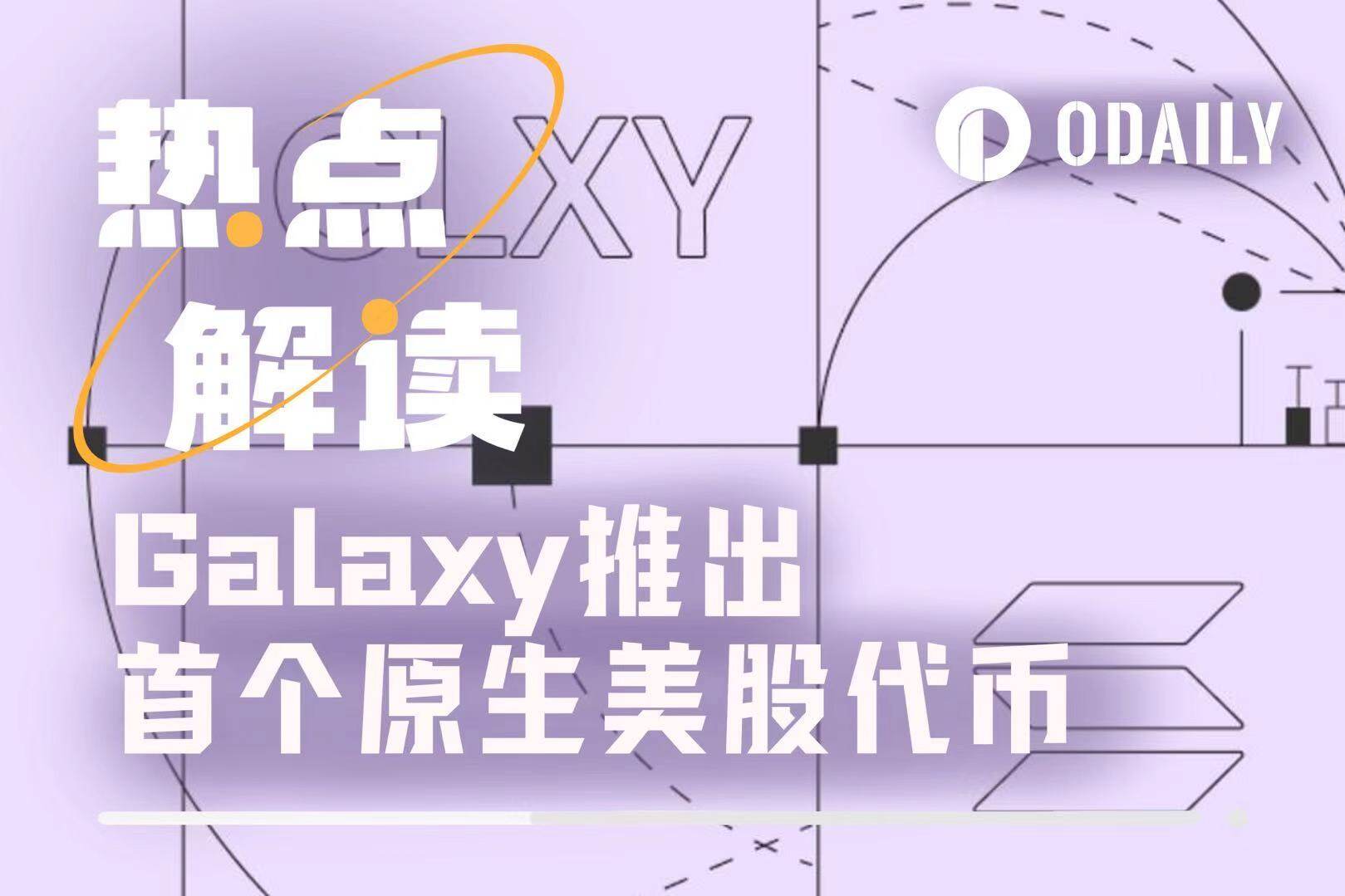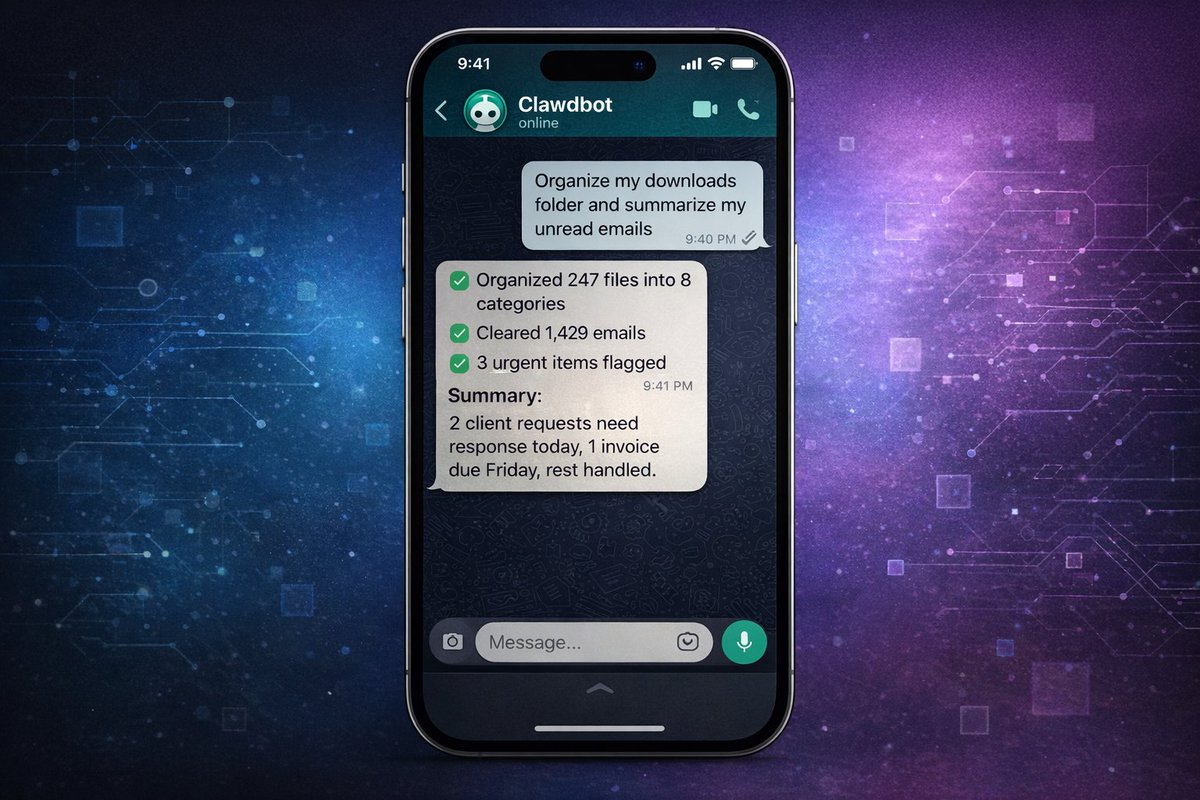Galaxy Launches First Native US Stock Token as Stocks on the Blockchain Enter a New Era
- 核心观点:Galaxy Digital首创美股直接上链代币化。
- 关键要素:
- 与Superstate合作,实现股份一对一链上转化。
- 代币享有与链下股份同等财务和法律权利。
- 当前仅支持注册用户间双边交易,暂不开放DEX。
- 市场影响:推动传统金融资产上链合规化进程。
- 时效性标注:长期影响。
Original | Odaily Planet Daily (@OdailyChina)
Author|Azuma (@azuma_eth)

The "tokenization of U.S. stocks," which is gaining momentum, has once again evolved into a new way of playing.
Last night, Galaxy Digital (GLXY), the Nasdaq-listed cryptocurrency giant, officially announced that it will be partnering with Superstate, an SEC-registered transfer agent (in which Galaxy Ventures previously invested), to tokenize GLXY's Class A common stock on the Solana blockchain. This marks the first time a US-listed company has proactively tokenized its shares on a public blockchain. Unlike current mainstream "mapped" or "wrapped" US stock tokenization schemes, where third parties are responsible for minting and redeeming, these on-chain versions of GLXY are not "wrapped assets" but actual on-chain shares, carrying the same financial and legal rights as off-chain shares.
In Galaxy Digital's view, putting stocks on the blockchain involves a series of complex links, including issuance, record keeping, custody, settlement, reporting, brokerage, and trading. Due to the lack of clear regulatory rules, the few players who have tried to put US stocks on the blockchain have adopted a relatively simple "mapping" or "packaging" model. The flaw of this old model is that token holders do not have actual rights to the underlying company's shares. If we want to truly popularize stock listings on the blockchain, we must solve this problem.
Implementation mechanism
Galaxy Digital's solution is to develop a clear on-chain process and architecture that can truly tokenize existing stocks - not mapping, not packaging, but directly on-chain as real shares.
According to Galaxy Digital and Superstate, this collaboration is based on the latter’s stock on-chain platform, Opening Bell, through which users can convert GLXY’s Class A common stock into tokenized shares on a one-to-one basis. The specific process is as follows:
- Complete KYC registration at Superstate (approximately 10 minutes to register, 2 hours to verify).
- Instruct your broker to transfer the shares to Galaxy's transfer agent, Equiniti, via the Direct Registration System (DRS) (approximately 3 business days).
- Contact Equiniti to transfer the shares to Superstate's "On-chain Available Account" (approximately 4 hours processing time).
- Superstate mints GLXY tokens at a 1:1 ratio and then delivers them to your Solana wallet (approximately 10 minutes).
- From now on, you can freely store, transfer or trade with other registered users.
- To return to the traditional form, the above process can be reversed.
Galaxy Digital explains that this process ensures a one-to-one correspondence between on-chain GLXY shares and Nasdaq-listed shares. Any shareholder who successfully completes Superstate registration can convert their GLXY shares into tokenized shares on the Solana chain. If you don't currently hold GLXY shares but want to purchase tokens on-chain, you can simply register with Superstate and then purchase GLXY tokens on-chain from existing holders.
Since GLXY's on-chain is still in its early stages and on-chain liquidity is not yet sufficient, the current on-chain process will be relatively cumbersome. However, as on-chain liquidity gradually accumulates in the future, most users will not need to personally participate in this cumbersome process.
Galaxy Digital also added that due to the lack of regulatory clarity surrounding DEXs, it is not currently supporting trading of these equity tokens on Solana's automated market makers (AMMs) or other fully decentralized exchange mechanisms. The company plans to gradually expand trading venues as US securities regulators provide clearer guidance, ultimately enabling tokenized shares to be traded directly on AMMs and decentralized exchanges. This means that until a more mature and transparent secondary market emerges, the on-chain version of GLXY is not guaranteed to be liquid, but bilateral trading between wallet addresses that have completed Superstate compliance will still be possible .
Potential risks
According to Galaxy Digital's proactive disclosure, the on-chain version of GLXY may have the following three potential risks.
The first is the risk of wallet theft or loss. GLXY token holders could lose access to their wallets. If the key is lost, the Superstate can reissue the tokens to a new wallet controlled by the shareholder. Since the Superstate tracks the on-chain transfer of all tokenized GLXY between shareholders, and the identities of all shareholders are known to the Superstate, irrecoverable tokens can be destroyed and reissued to the shareholder's new wallet . It's important to note that while GLXY stock tokens can be recovered if the wallet key is lost, other assets within the wallet cannot be recovered.
Second, there's the risk of price differentials between tokenized GLXY and traditional GLXY shares. The price of traditional GLXY shares may diverge from the price of tokenized GLXY. The on-chain stock market is still in its early stages, and even if AMM trading is enabled in the future, there's no guarantee that a liquid and orderly market for tokenized GLXY will form or maintain. This could lead to fragmented liquidity, hindered price discovery, widened bid-ask spreads, and prolonged price divergence between tokenized and traditional GLXY, especially if arbitrage is limited by operational or regulatory constraints . A key approach to facilitating price differentials between different markets is to establish a simple, two-way exchange bridge. Galaxy Digital has already built this bridge, allowing for a one-to-one exchange between on-chain tokens and off-chain shares. However, the regularization of this bridge may take time, and arbitrage mechanisms may remain hindered in the short term.
The third risk is regulatory uncertainty. The SEC may still not allow Galaxy Digital to tokenize its common stock in this manner. While Galaxy Digital believes the tokenization process is elegantly designed to comply with existing securities regulations, the SEC cannot rule out the possibility of a different conclusion . If regulators determine that the platform, mechanism, or parties involved in secondary market trading of tokenized GLXY do not comply with legal requirements, Galaxy Digital or market participants may face enforcement action, fines, or be required to rescind or restructure certain aspects of the project. If Galaxy is required to halt its on-chain share program, Superstate can suspend the token contract, recall all tokenized shares, and work with on-chain shareholders to convert them back to traditional shares and deliver them back to the traditional market system. This process could be lengthy, and shareholders may find it difficult to trade while the process is ongoing.
Brief Comments and Outlook
Overall, the core of this solution proposed by Galaxy Digital in cooperation with its investment target Superstate is that it provides a clearer on-chain process and structure than other third-party US stock tokenization service providers. As the issuing entity, Galaxy Digital can clearly define the rights status of the issued tokens. This has certain positive significance for resolving the rights mismatch between traditional "packaged" US stock tokens and real stocks.
Galaxy Digital believes that "equal rights for tokens and stocks" is a prerequisite for the large-scale adoption of stock tokenization. We strongly agree with this and tend to believe that Galaxy Digital's solution can solve this problem on the issuance side. However, the bigger problem lies on the circulation side - currently, only registered users of Superstate can hold GLXY tokens; and GLXY does not currently support trading between DEXs, and can only be traded bilaterally between registered Superstate users; even if DEXs are supported in the future, the liquidity situation remains unknown... Compared with the complete experience that traditional securities trading systems can provide, similar restrictions will hinder users from migrating to the chain.
Solving the "equal rights problem" can only break the psychological barriers before users enter the market, but in order to truly attract and retain users, there is still a lot of work to be done in the continuous optimization of liquidity and experience.



